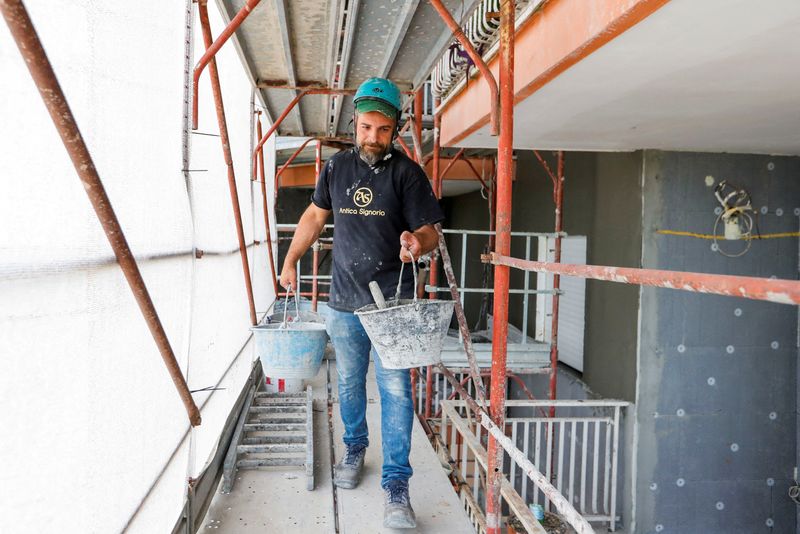Italy seeks to ease fears over curbs on costly home incentives
2024.05.09 09:21

By Giuseppe Fonte
ROME (Reuters) -Italy has no plans to backdate upcoming curbs on costly fiscal incentives for home renovations to before 2024, a junior Treasury minister said on Thursday, in an effort to ease fears about the impact of the restrictions.
The government has said it needs to restrict the incentives, which have cost the state more than 200 billion euros ($215 billion) over four years, to keep in check Italy’s creaking state finances that are under close scrutiny by rating agencies.
The most generous incentive, the so-called ‘Superbonus’, allowed homeowners to deduct the cost of energy-saving work from their taxes over a 4-10 year period, or use the tax credit as a form of payment when dealing with builders or banks.
Rome has said it plans to change the measures so people can only deduct the cost of work done from tax bills over a ten-year period.
Some lawmakers had suggested the change could be back-dated to cover expenses incurred since early 2023 or even earlier, prompting protests from banks and businesses who said that move would devalue the tax credits they had already taken as payment.
On Thursday, however, Treasury Undersecretary Federico Freni told reporters the changes would not be backdated to before January.
“So an expense made in December 2023 is not eligible to mandatory accrual over 10 years,” he said.
“The provision of the 10 equal annual instalments will be an obligation and not an option for the taxpayer.”
Italy’s banking and building lobbies said on Wednesday that any retroactive intervention would have the biggest impact on businesses, banks and citizens.
3rd party Ad. Not an offer or recommendation by Investing.com. See disclosure here or
remove ads
.
Rome had already sparked protests in March by blocking the option of selling tax credits stemming from building works with few exceptions.
The new curb will now allow Italy to restore its previous deficit targets for the next two years which were set in September, Economy Minister Giancarlo Giorgetti told lawmakers on Wednesday, based on the minutes from the parliamentary session.
At the time the government promised to cut the fiscal gap to 3.6% of GDP in 2025 from 4.3% this year, and to 2.9% in 2026. Under current trends, the deficit is seen by the Treasury slightly higher at 3.7% next year and 3% in 2026.
Giorgetti said that restoring the targets would require cutting the deficit by 700 million euros in 2025 and 1.7 billion the following year, according to the minutes.
Italy’s public debt, the second largest in the euro zone as a proportion of output, is seen rising to nearly 140% of GDP through 2026 due to the cost of the incentives.
($1 = 0.9318 euros)








